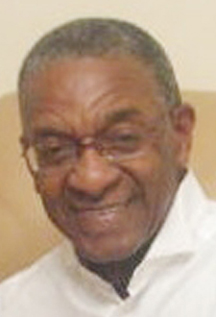By Cosmo Hamilton
Despite the embarrassing three to two loss in the ODI series against Bangladesh recently, the West Indies ended an eventful year on a high note. Thanks to a pivotal innings of 85 in 43 balls by Marlon Samuels which included nine sixes, the West Indies reached 197 for 4, a target that proved just out of the reach of an enterprising Bangladesh team that fell just short at 179 for 1 in their 20 overs, and copped the Sahara T20 International trophy thus maintaining bragging rights as World T20 International champions.
Samuels’ innings was reminiscent of his 78 out of West Indies 132 for 6 in the World T 20 final against hosts Sri Lanka in which he targeted much vaunted pacer Lasith Malinga for five sixes and one four and almost single-handedly steered the Windies from an anemic 32 for 2 after 10 overs to what proved to be a match-winning total.
Throughout the year 2012, whether it has been in Test matches, ODIs, or T20 Internationals, Samuels’ improvisational power-hitting as well as his classic stroke-making have been nothing short of master-class, much like listening to the late lamented jazz trumpeter Miles Davis, or of more recent vintage trumpet genius Wynton Marsallis.

Certainly for the West Indies the 31 year old Jamaican who in this campaign has taken his class act worldwide – from England, to the Caribbean against New Zealand, and then to Bangladesh, can justifiably lay claim to being the player of the year.
In seven Test matches this year – three against England, two against New Zealand, and two in Bangladesh, Samuels has tallied 790 runs at an average of over 87, with two centuries – 117 versus England, 123 against New Zealand, and one double century – 260 against Bangladesh.
His flawless technique in each of the three Tests in England in the spring was a revelation, against what is arguably the most accomplished bowling attack in cricket today, including James Anderson, Stuart Broad, Tim Bresnan, and offspinner Graeme Swann. In the 1st Test at Lords Samuels tallied 31 and 86; in the 2nd Test at Trent Bridge he stroked an elegant 117 and 76 not out; and in the 3rd and final Test at Edgbaston he fashioned a classy 76.
The hard hitting right hander and part time offspinner has had somewhat of a checkered career since his surprise Test debut at age 19 against Australia at Adelaide even before he had represented his native Jamaica in a first class game, but has undoubtedly cemented his position in the West Indies team in this his second coming. And evidently his return to an elite level of consistent form has coincided with the resurgence of the regional team. Banned by the ICC for two years in 2008 ‘for actions that could bring him or the game into disrepute’, unlike two of his talented countrymen, pacers Jermaine Lawson and Jerome Taylor who have aborted promising Test careers – Lawson due to suspect action and Taylor on account of an unresolved injury situation, Samuels was determined to return to achieve his full potential in all forms of the game.
It was potential that manifested itself in his early teens when as a gifted player with pedigree – his brother Robert Samuels represented the West Indies in six Tests and his cousin is fast bowling legend Courtney Walsh – he would skip school as he reportedly preferred to be on the cricket field rather than in a classroom.
His premise was that a future professional cricketer did not need to be successful academically.
As a teenager Marlon Samuels was considered a natural, and garnered comparisons to Viv Richards which, based on his skill set as a cricketer, his confidence as expressed in recent interviews, his mental toughness which kept him focused particularly in the period of his banishment from first class cricket, and his bravado as a batsman, is not far-fetched. And now that he is back in the game that he was born to play, cricket fans the world over but more especially those in the Caribbean must look forward to many more virtuoso master blaster-type performances from him in 2013 and beyond.









